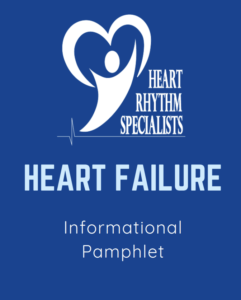What is Heart Failure?
Heart failure is a condition where the heart isn’t pumping blood efficiently to the rest of the body. It does not mean that the heart has stopped working or “failed.”
Heart failure can either be chronic, (develops over a long period of time) or acute (develops suddenly).
How is Heart Failure Diagnosed?
Dr. Yoo will use a combination of testing and medical and family history to diagnose the patient.
Testing may include
- electrocardiogram (ECG/EKG)
- echocardiogram
- stress test
- chest x-ray
- blood tests
- cardiac MR
Risk Factors include:
- older age (65+ are at a higher risk for heart failure)
- heart attack
- obesity
- congenital heart defects
- history of smoking
Causes of Heart Failure include:
- high blood pressure
- arrhythmias
- coronary artery disease (CAD)
- heart attack
- diabetes
- congenital heart defects
- heart valve disease
- heart damage due to infections,
drug abuse, alcohol abuse - thyroid disorders
- radiation and chemotherapy
Symptoms of Heart Failure
Symptoms may include:
- weakness or fatigue
- shortness of breath with brief
weakness or fatigue - shortness of breath with brief
exertion or when lying down - nausea
- chest pain (angina)
- edema
- irregular or rapid heartbeat
- severe coughing with phlegm
Treatments for Heart Failure
Treatment may include a combination of medicine, surgery, and lifestyle changes depending on the severity of the heart failure.
Lifestyle changes include:
- eating a healthy diet
- diuretics to manage fluid and
swelling - regular physical activity
- stopping smoking or drug abuse
- aiming for and maintaining a
healthy weight - pacemaker or Implantable
cardioverter-defibrillator (ICD)
